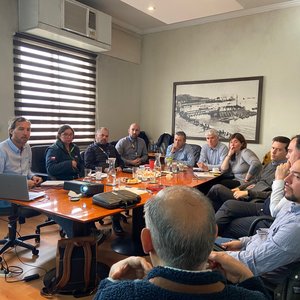Global Aquaculture Alliance welcomes public comments on new BAP Feed Mill Standards
Deadline for comment is October 31, 2009
Drafts of the new Best Aquaculture Practices standards for feed mills, developed under the guidance of the Standards Oversight Committee of the Global Aquaculture Alliance, are now posted for public comment at www.gaalliance.org/comment5.html. Interested parties should submit comments by October 31, 2009.
In addition to submission via the website, comments can be submitted by e-mail or fax to BAP Standards Coordinator Daniel Lee (dangaelle@aol.com, +44-1248-716729) or Technical Committee Chairman Sergio Nates (snates@nationalrenderers.com, +1-703-683-2626).
Two draft documents — the standards/guidelines and accompanying audit form — are provided online in PDF format. The first file outlines the standards, as well as the reasons for their requirements and how best to comply with the standards. The draft audit form indicates how evaluators will review feed mills for compliance with the BAP standards.
In addition to social and environmental responsibility, the new feed mill standards encompass food safety and traceability. Audit questions address potential chemical and other safety hazards, and require certified feed plants to comply with regulations regarding feed ingredients. The feed mills must also obtain marine meals and oils from sustainable sources and provide information on the levels of these products used in feeds.
The Standards Oversight Committee (SOC) recently approved the release of the new standards for public comment after reviewing an initial draft submitted by the Feed Mill Technical Committee. After evaluating comments received, the technical committee will consider changes to the standards and forward a revised document to the SOC for further approval. All properly submitted comments will be acknowledged.
GAA Executive Director Wally Stevens said the release of the draft standards for feed mills is a significant milestone for the aquaculture community. “Real or perceived, feeds are the limiting factor in the growth of responsible aquaculture,” he said. “For that reason, we view the responsible production of feeds as one of the top three issues that our industry must address — and one that we will address at our upcoming GOAL meeting in Seattle.”
For additional information on the comments process and Best Aquaculture Practices certification, contact Daniel Lee at +44-1248-712906, e-mail dangaelle@aol.com.
The Best Aquaculture Practices program is a comprehensive, rigorous, metrics-based certification program for aquaculture — including farms, hatcheries and processing plants. BAP standards cover the environment, social responsibility, animal welfare, food safety and traceability. For more information on BAP, visit www.gaalliance.org/bap.html.










